Brief

Executive Summary
- Although many companies are making massive investments in artificial intelligence (AI), questions remain about their ROI.
- However, our survey finds that financial services firms are benefiting from an average 20% productivity gain in software development, customer service, and other areas.
- Large banks, insurers, and others in the sector continue to invest more heavily than firms in other industries.
- Issues around risk, regulatory compliance, data security, and privacy and governance have hindered the pace of adoption.
Financial services companies are beginning to realize significant business value from generative AI. Bain & Company’s July 2024 survey of 109 US financial services firms found that they’re seeing productivity boosts including more rapid development of software and better customer service. Given these gains, firms are maintaining heavy investment in the technology.
Software development leads the way
Companies have launched generative AI experiments broadly, with software development, IT, and customer service being the most widely deployed uses (see Figure 1). This is consistent with more mature versions of AI, as large language models became pervasive among software engineers for coding well before the launch of ChatGPT.
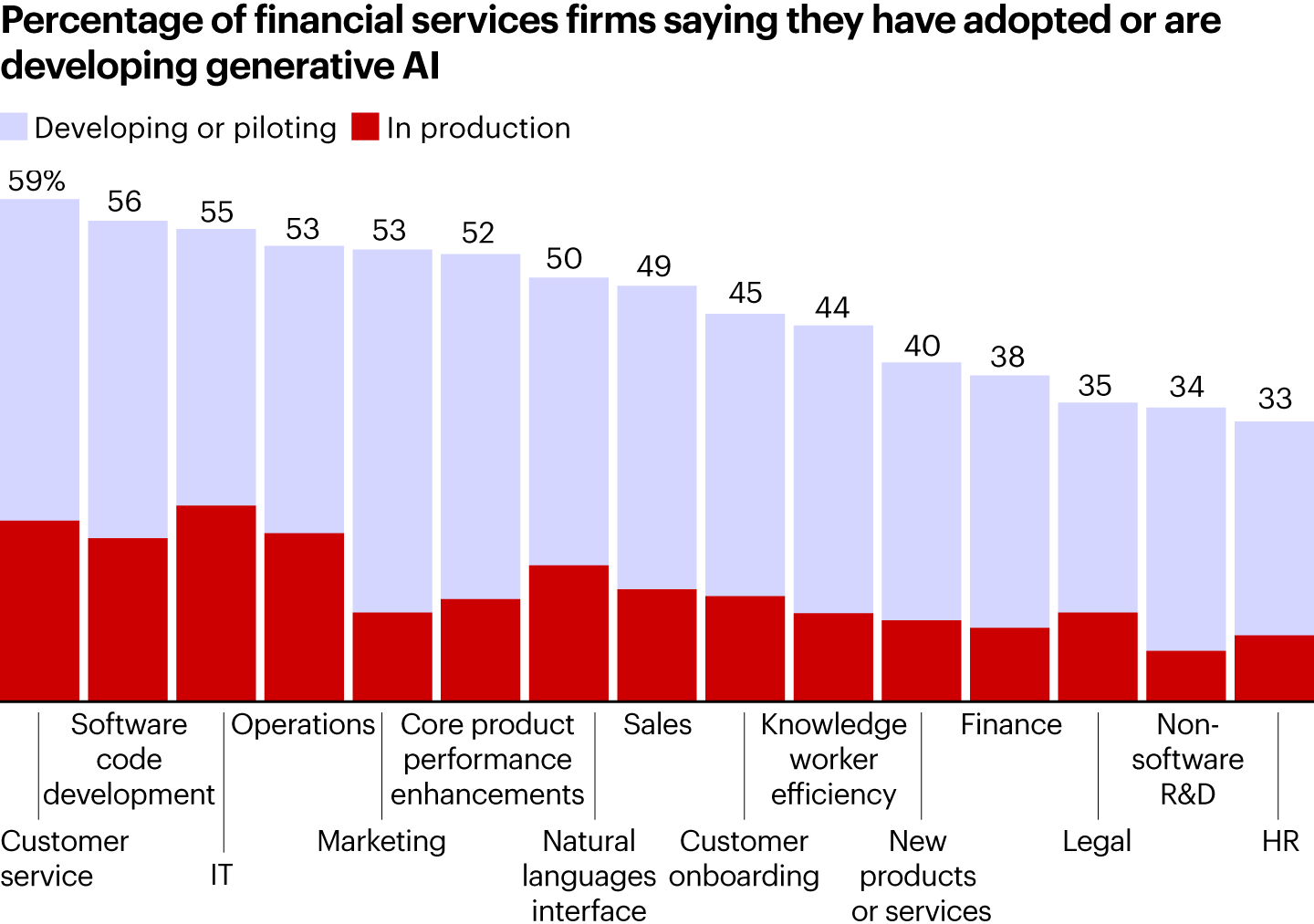

For instance, a randomized controlled trial analyzing the effects of generative AI on high-skilled work with 4,900 coders in three large companies found a 26% increase in the number of completed tasks using coding assistance tools. Productivity gains using Copilot were higher among less experienced developers compared with more tenured staff.
The effects of generative AI translate to an average productivity gain of 20% across uses, according to survey respondents (see Figure 2). We’ve reached a stage where companies now monitor when—not if—the use of AI will generate value across the board.
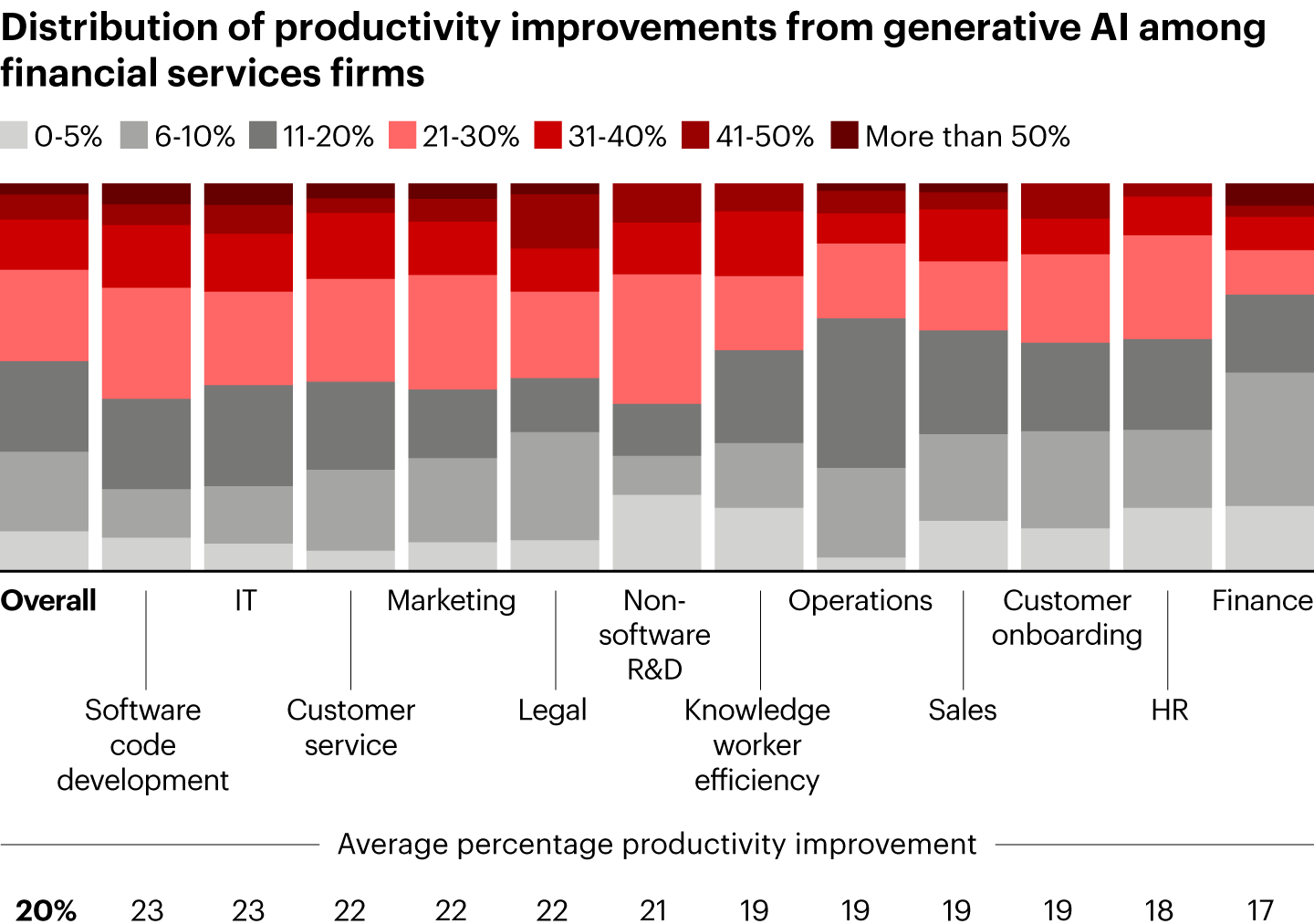

Regulatory and data concerns
Despite the clear positive impact of implementing generative AI, financial services firms are wary about accelerating their pace of adoption due to several challenges, including uncertainty about regulations and concerns about data quality and security (see Figure 3). Those concerns are more prevalent among financial services firms compared with less regulated industries. To succeed with AI tools at a large scale, financial services companies will need to maintain a dialogue with regulators and develop deeper expertise at the intersection of regulation, data security, and privacy. That will entail more deliberate governance around regulatory compliance, task assignments, and individual roles.
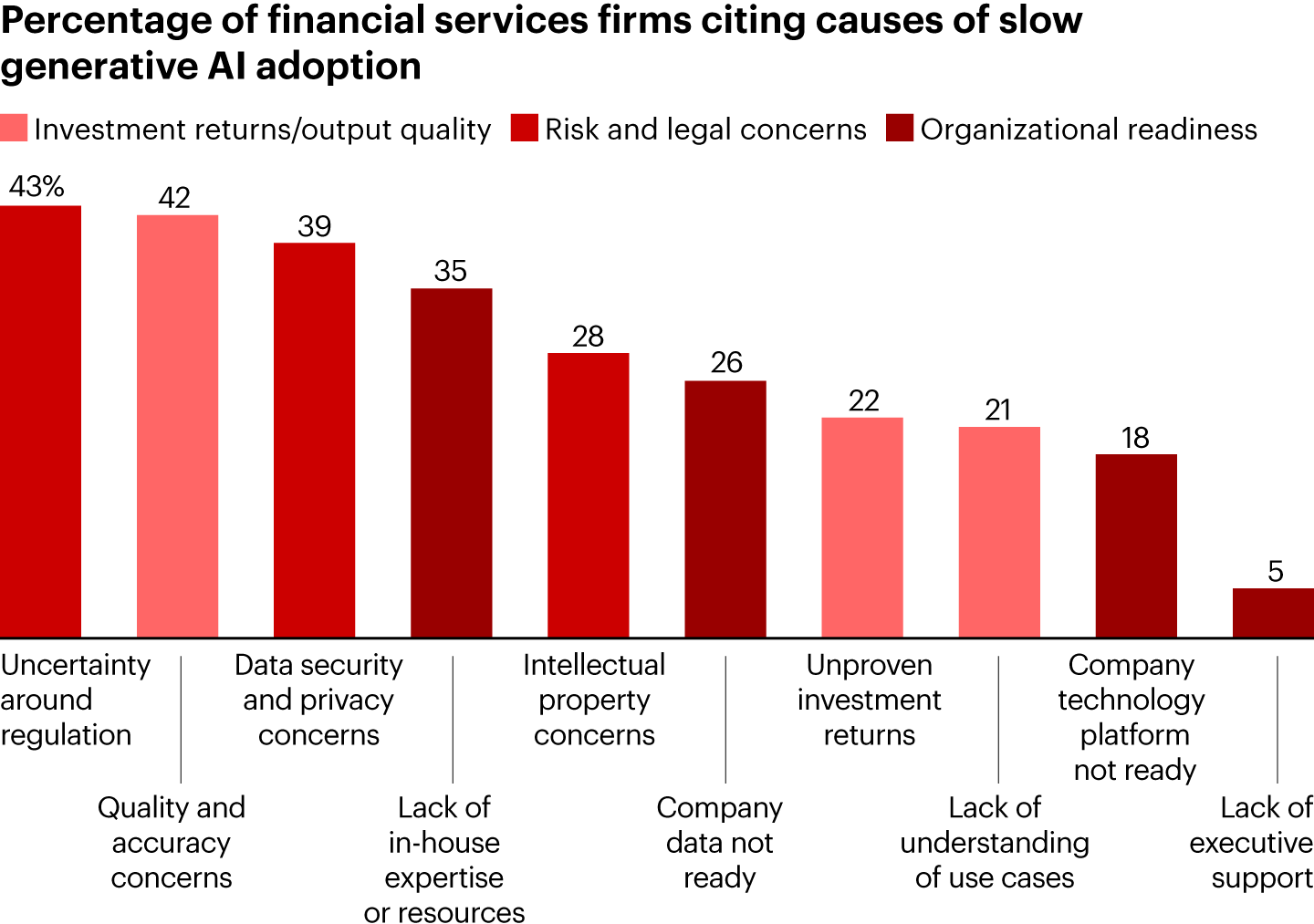

Companies will also need to attract and develop the right talent. An average 70% of survey respondents report that talent gaps exist across functions, especially in technical and risk and compliance fields.
Heavy investment
Financial services firms have invested heavily in generative AI, particularly compared with similar sized companies in other industries. Financial services firms with at least $5 billion in revenue are investing an average $22.1 million in 2024, with about 270 full-time equivalent staff involved on average, compared with $17.6 million for other industries (see Figure 4). The top decile of firms are investing an average of more than $100 million in 2024.
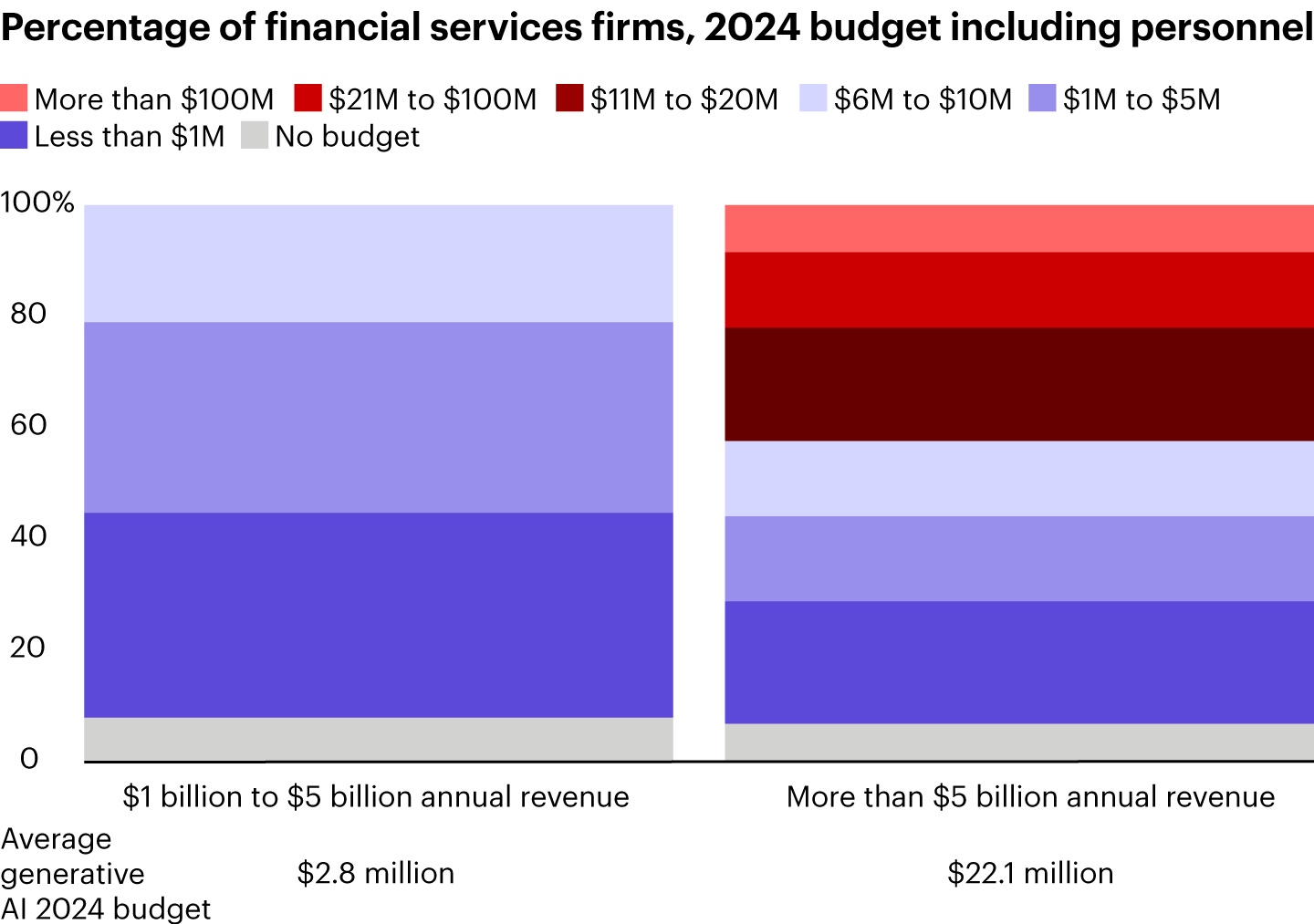

A centralizing tendency
Almost half of financial services companies are fully or somewhat centralized across their AI-related decision processes (see Figure 5). For companies that use a hybrid model, it’s common to centralize strategy and governance and decentralize execution.
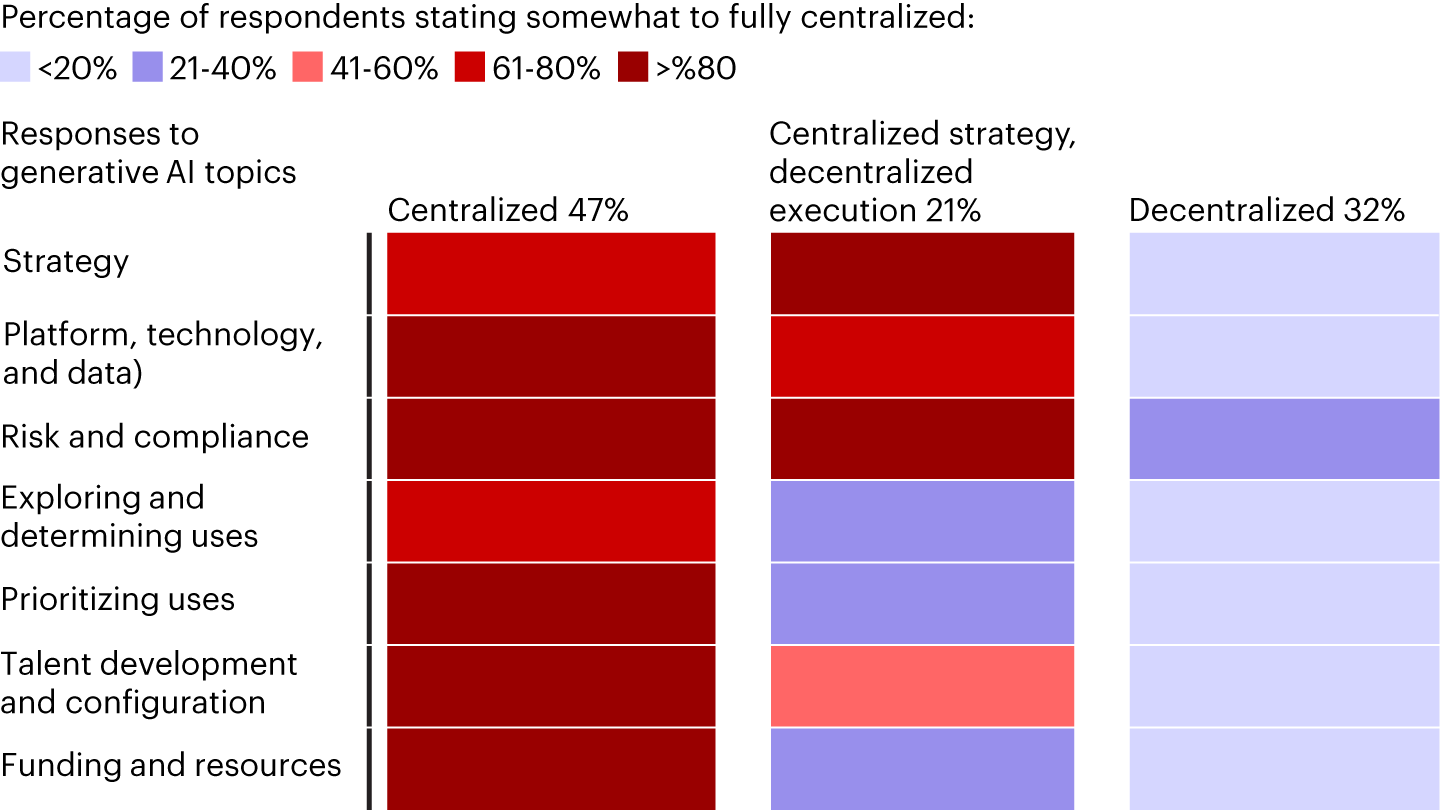

Build more than buy
When it comes to the choice of buying or building generative AI solutions, most financial services companies build their own across all applications—at a slightly higher rate compared with other industries (see Figure 6). Many applications are built in-house because off-the-shelf versions aren’t ready yet or the companies want more control over their solutions.
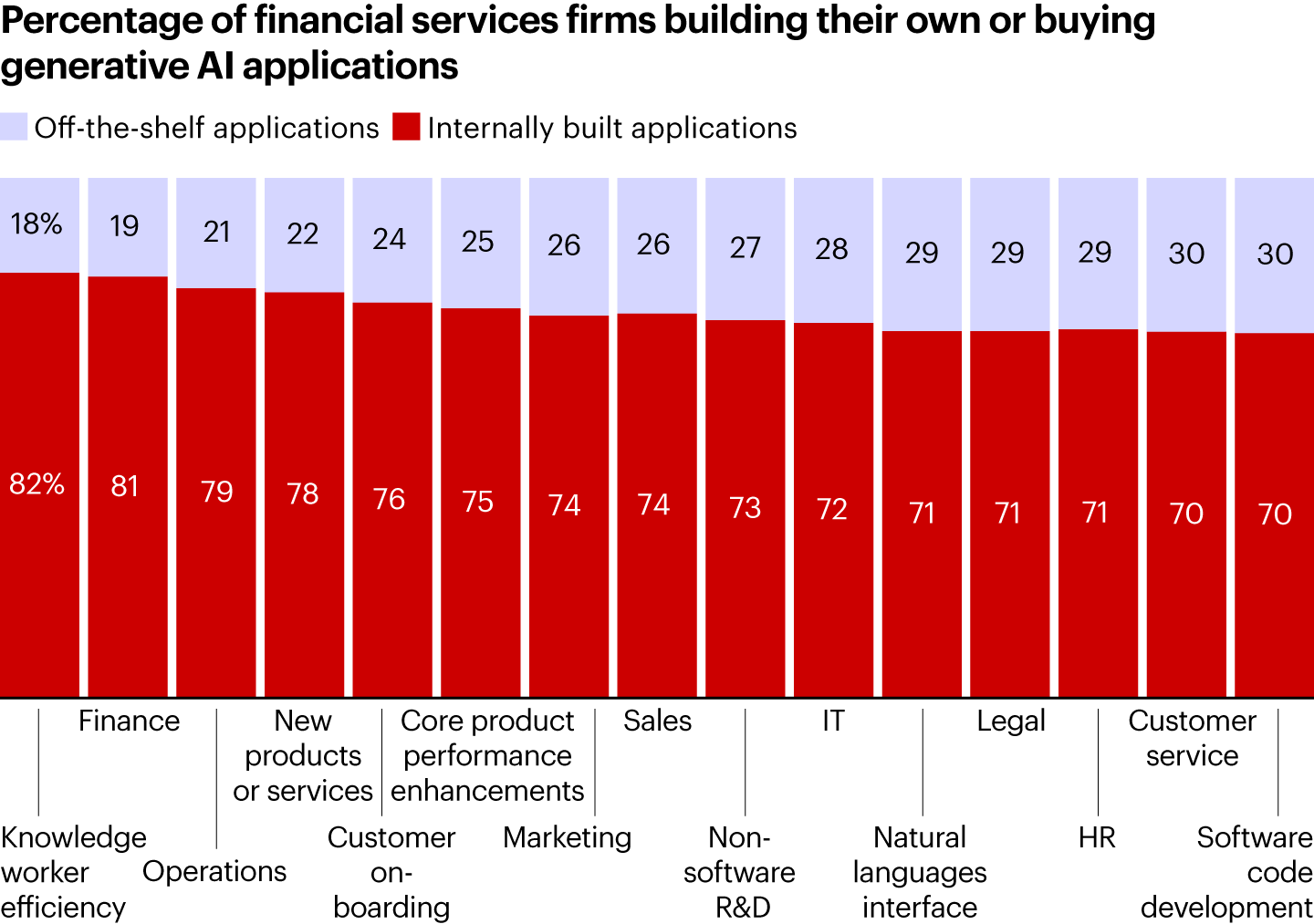

Overall, our survey suggests that financial services companies have already reaped value from generative AI, expect to gain still more value, and thus are investing in talent and other resources. While most of the companies have been developing their own solutions, third-party offers are getting more sophisticated and relevant to this highly regulated industry, so we expect to see a growing number of companies decide to buy rather than build. It is still early days for the technology that promises to further improve operations and customers’ experience.

About IncQuery
IncQuery is a leading programming provider of quantitative surveys for primary research. Its collaborative co-authoring platform, combined with support from experienced survey directors, empowers professionals to quickly launch high-quality surveys. Visit incquery.com for more information.